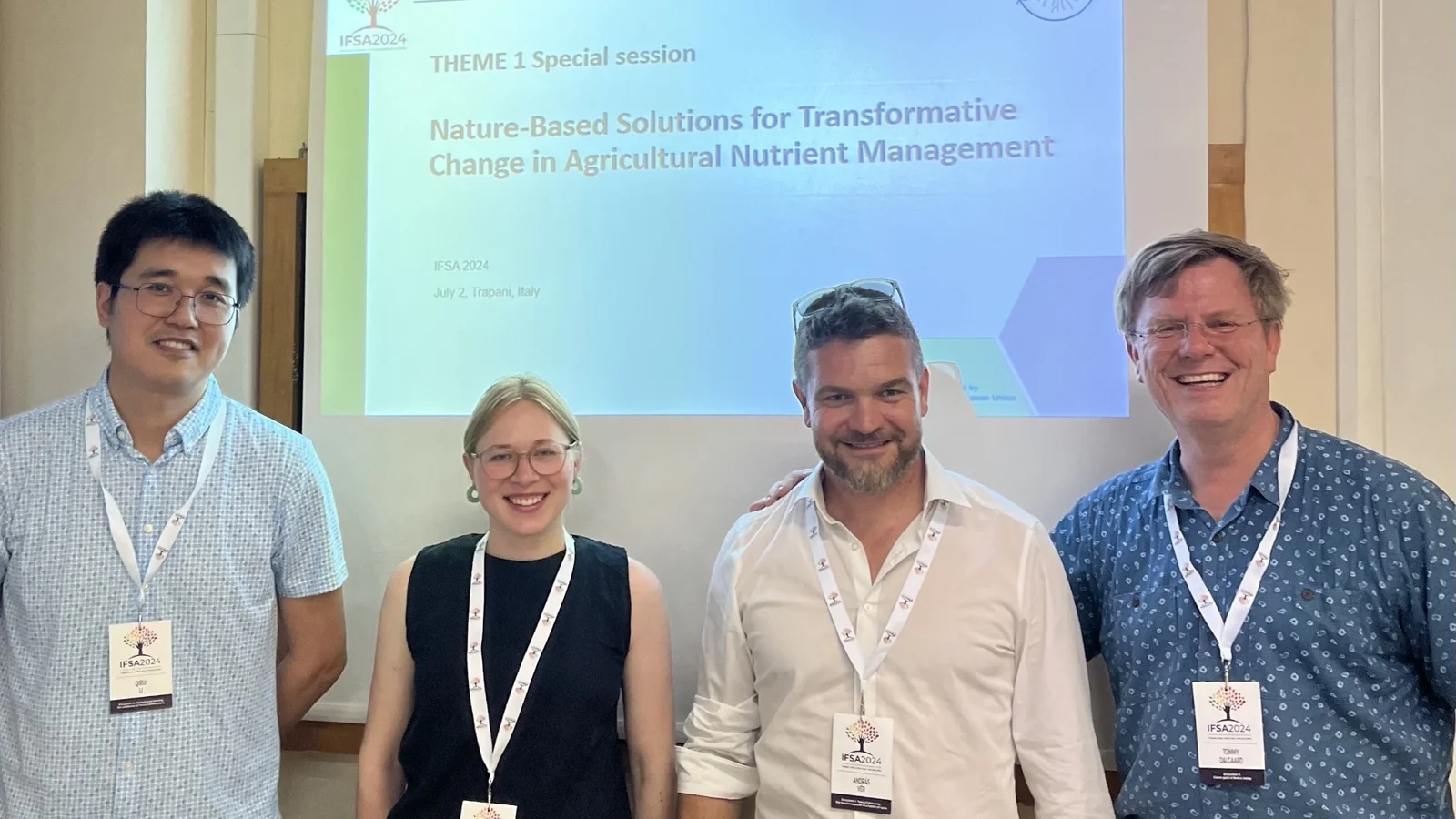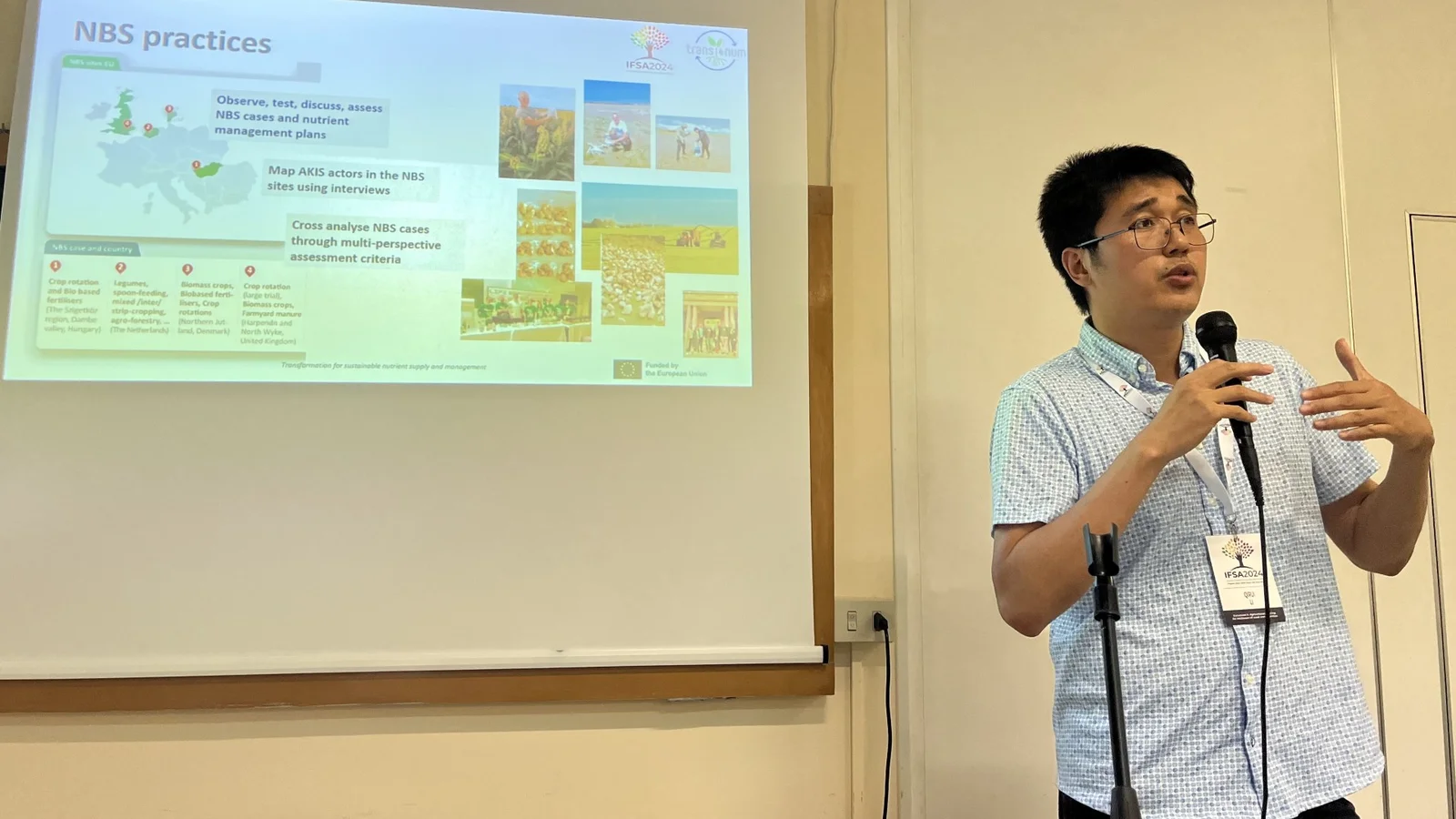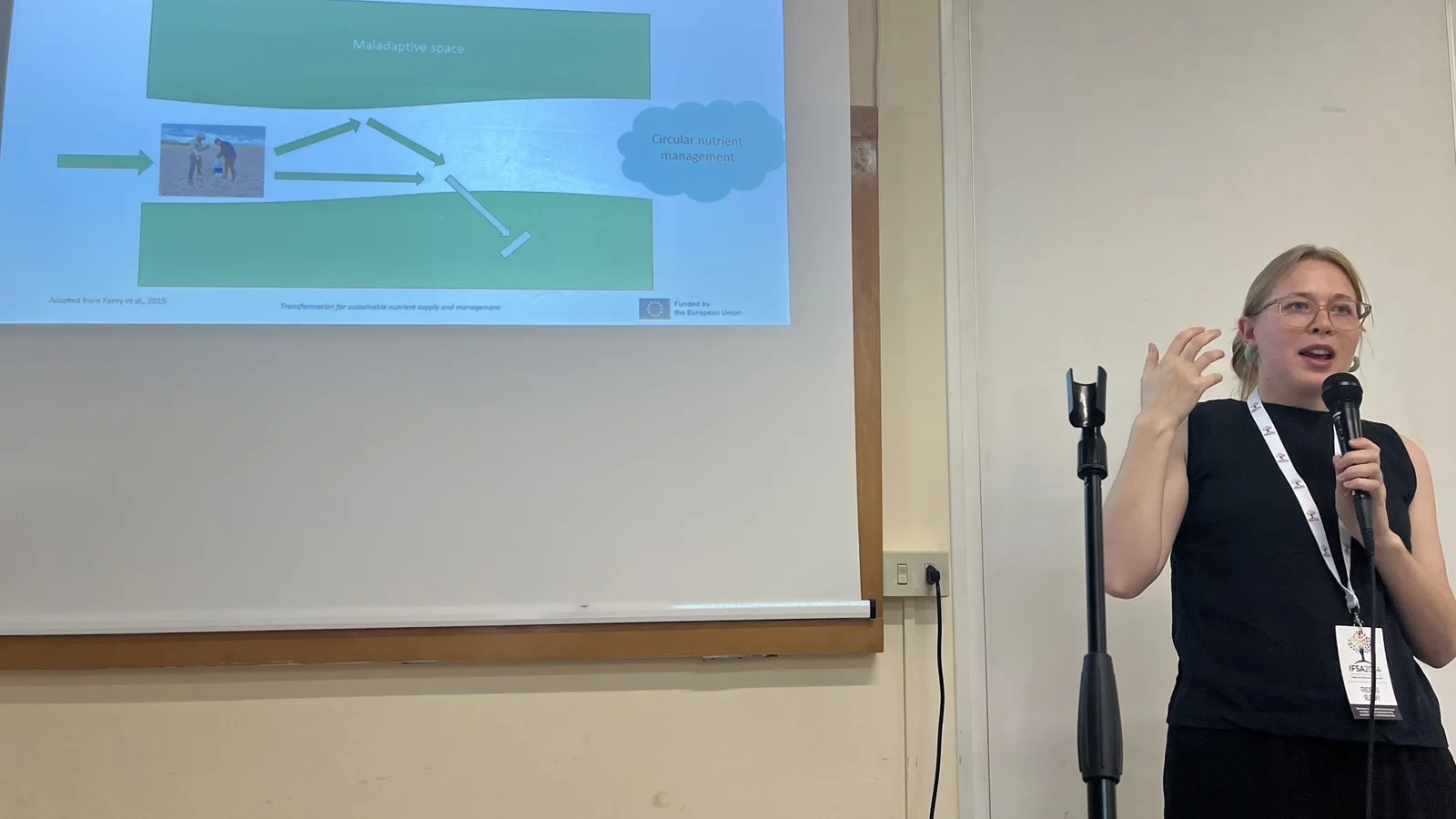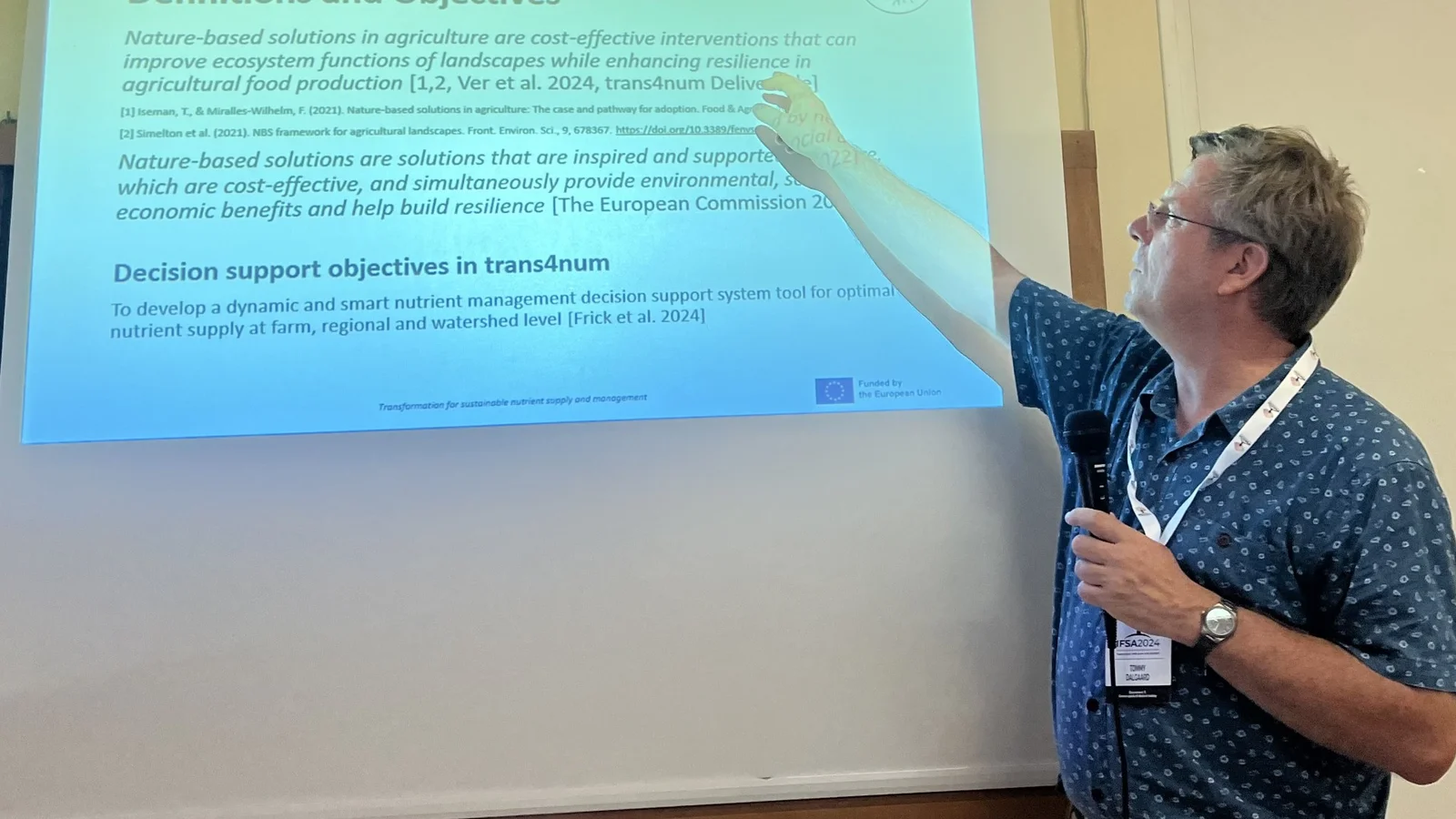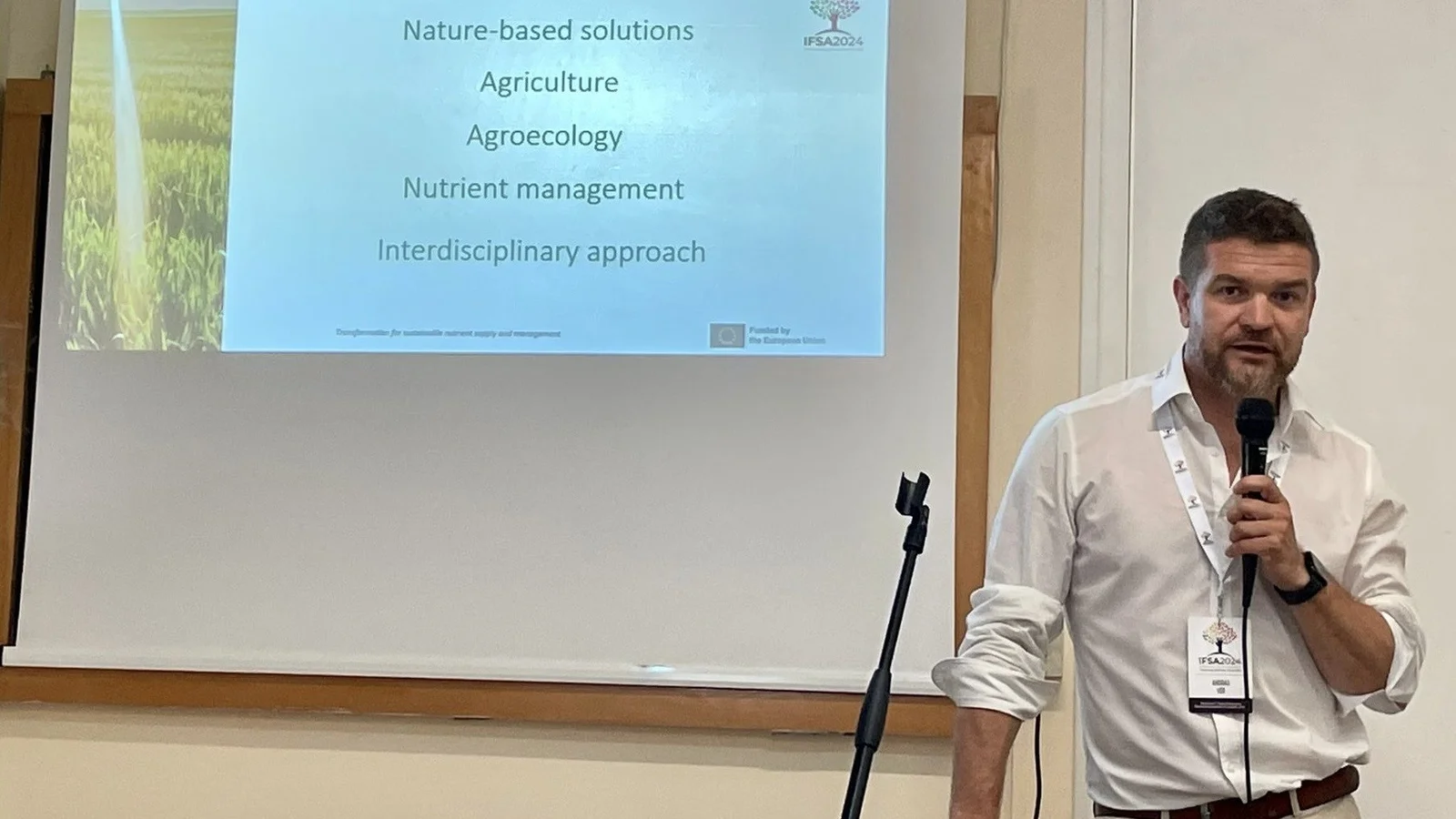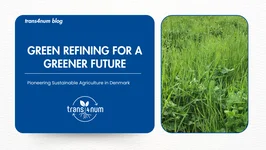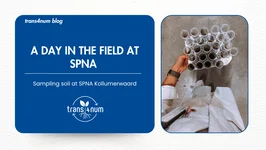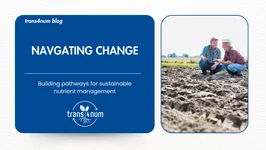| Communication team
trans4num
Reflections on the IFSA Conference: Nature-based Solutions for Transformative Change in Agricultural Nutrient Management
The International Farming Systems Association (IFSA) conference (https://ifsa2024.crea.gov.it/) has always been a remarkable platform for agricultural researchers, practitioners, and policymakers to converge, share insights, and explore innovative solutions for sustainable farming. This year was no exception. The vibrant exchange of ideas, the depth of discussions, and the sheer diversity of perspectives truly made the conference an enriching experience.
Our special session, "Nature-based Solutions for Transformative Change in Agricultural Nutrient Management," was one of the highlights of the conference. With the growing recognition of Nature-based Solutions (NBS) as a key strategy to address the complex challenges of sustainable nutrient management, our session aimed to delve into the multifaceted dimensions of NBS and its practical applications within agricultural systems. Drawing upon the foundational work of the EU Horizon project 'Transformation for Sustainable Nutrient Supply and Management' (trans4num), we sought to explore the transformative potential of NBS in promoting agricultural sustainability.
The Conference Atmosphere
The overall atmosphere of the conference was charged with enthusiasm and a collective drive towards innovation in agricultural systems. The wide array of sessions, ranging from theoretical frameworks to practical applications, ensured that there was something for everyone. The diversity of participants—from seasoned researchers to young scholars and field practitioners—fostered rich dialogues and networking opportunities.
Sessions of Interest
Beyond our special session, several other sessions piqued our interest. For instance, the session on "Going Digital" showcased cutting-edge advancements in precision agriculture, while the "Mediterranean socio-technical systems" session provided valuable insights into adaptive strategies for Mediterranean agricultural development. These sessions underscored the interdisciplinary nature of sustainable agriculture and highlighted the need for integrated approaches to tackle pressing challenges.
trans4num special session
Our special session was structured to provide a comprehensive overview of the theoretical underpinnings of NBS, facilitate interdisciplinary dialogue, and explore the practical implications and challenges of integrating NBS into intensive farming systems. Here’s a detailed account of the presentations and discussions:
Opening Remarks: Qirui Li gave a succinct introduction to the session's theme and objectives, setting the stage for the insightful presentations that followed.
Presentation of Papers: The paper presentations formed the core of our session, each followed by engaging Q&A sessions:
- Andras Ver conducted a "Literature Review on Nature-based Solutions from Different Perspectives," providing a holistic view of the various conceptualizations and approaches to NBS. This presentation sparked a lively debate on the diverse ways in which NBS can be understood and applied across different contexts.
- Qirui Li's examination of "Transitioning Agricultural Nutrient Management through Nature-Based Solutions", demonstrates the efforts to define and frame NBS in the nutrient management of agri-food systems. This offered theoretical and analytical considerations for the study of NBS in agricultural nutrient management.
- Friederike Selensky's presentation on "Transforming Nutrient Management in Agriculture: Barriers, Pathways, and Implications for Sustainability" provided a thorough analysis of the obstacles and opportunities in transitioning towards sustainable nutrient management. The discussion that followed highlighted the critical role of policy and stakeholder engagement in overcoming these barriers.
- Tommy Dalgaard presented "Decision Support for Nature-based Solutions in Agricultural Nutrient Management – Green Transition Scenarios for the Landscapes around Limfjorden, Denmark." His study offered compelling green transition scenarios and emphasized the importance of decision-support tools in implementing NBS effectively. The audience was particularly interested in the practical applications of these tools and their potential to drive ecological resilience.
Plenary Discussion: The plenary discussion was a highlight, providing a platform for in-depth exploration of the themes presented. Key topics included:
- Insights from the literature review on diverse NBS approaches.
- Theoretical and analytical frameworks for scaling up NBS in agricultural systems.
- Identifying and overcoming barriers to transforming nutrient management practices.
- The effectiveness of decision support tools in NBS implementation.
Feedback and Reflections
The feedback we received was overwhelmingly positive. Participants appreciated the depth and breadth of the discussions and the practical relevance of the presentations.
The interactive format, with ample time for Q&A and plenary discussions, was particularly well-received. Many attendees expressed interest in continuing the dialogue through follow-up events and collaborations, highlighting the session's success in fostering a community of practice around NBS and sustainable nutrient management.
In conclusion, the IFSA conference provided an invaluable opportunity to share our work, gain new insights, and build networks. Our special session on NBS not only highlighted the transformative potential of these solutions in agricultural nutrient management but also underscored the importance of interdisciplinary collaboration and stakeholder engagement in driving sustainable agricultural practices. We look forward to continuing this important work and contributing to the global dialogue on agricultural sustainability.
Qirui Li, Andras Ver, Friederike Selensky and Tommy Dalgaard

